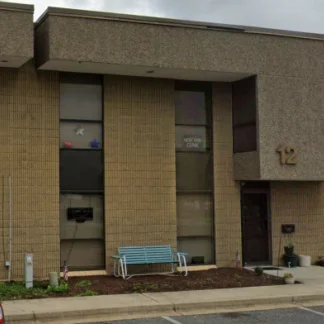Serenity Acres - 2009 St. Stephens Wood Drive
Serenity Acres - 2009 St. Stephens Wood Drive is exclusive luxury residential tr...
A New Way Clinic is a State Certified Program offering a variety of services for those suffering with alcohol and drug addiction. Services include education, counseling and treatment groups, along with general treatment information. A New Way Clinic is located at Crofton, Maryland.
Their services also include substance abuse education and treatment, alcohol and drug assessments, 12 hour MVA alcohol education classes, 12 hour drug education program, 26 week alcohol and drug outpatient treatments, relapse prevention groups, anger management, aftercare groups, DUI & DWI Classes, urinalysis testing, breathalyzer tests.
They offer a flexible schedule for individuals requiring either daytime or evening groups at competitive fees. They are closed on Friday and Sunday.
Contact us for more information: (410) 451-7323

Connect with A New Way Clinic by calling their admissions team directly.
(410) 451-7323 Website Get DirectionsThe Substance Abuse and Mental Health Services Administration (SAMHSA) is a branch of the U.S. Department of Health and Human Services. Established in 1992 by congress, SAMHSA's mission is to reduce the impact of substance abuse and mental illness on American's communities.
SAMHSA Listed: Yes
Cognitive Behavioral Therapy (CBT) is a therapy modality that focuses on the relationship between one's thoughts, feelings, and behaviors. It is used to establish and allow for healthy responses to thoughts and feelings (instead of unhealthy responses, like using drugs or alcohol). CBT has been proven effective for recovering addicts of all kinds, and is used to strengthen a patient's own self-awareness and ability to self-regulate. CBT allows individuals to monitor their own emotional state, become more adept at communicating with others, and manage stress without needing to engage in substance abuse.
Group therapy is any therapeutic work that happens in a group (not one-on-one). There are a number of different group therapy modalities, including support groups, experiential therapy, psycho-education, and more. Group therapy involves treatment as well as processing interaction between group members.
In individual therapy, a patient meets one-on-one with a trained psychologist or counselor. Therapy is a pivotal part of effective substance abuse treatment, as it often covers root causes of addiction, including challenges faced by the patient in their social, family, and work/school life.
Group therapy is any therapeutic work that happens in a group (not one-on-one). There are a number of different group therapy modalities, including support groups, experiential therapy, psycho-education, and more. Group therapy involves treatment as well as processing interaction between group members.
In individual therapy, a patient meets one-on-one with a trained psychologist or counselor. Therapy is a pivotal part of effective substance abuse treatment, as it often covers root causes of addiction, including challenges faced by the patient in their social, family, and work/school life.
In individual therapy, a patient meets one-on-one with a trained psychologist or counselor. Therapy is a pivotal part of effective substance abuse treatment, as it often covers root causes of addiction, including challenges faced by the patient in their social, family, and work/school life.
Serenity Acres - 2009 St. Stephens Wood Drive is exclusive luxury residential tr...
Outreach Dimensions is a private rehab located in Bowie, Maryland. Outreach Dime...
VOAC - Elm Avenue offers inpatient services for individuals with a mental health...
Ferry Point Treatment Center is a private traditional rehab located in Odenton, ...